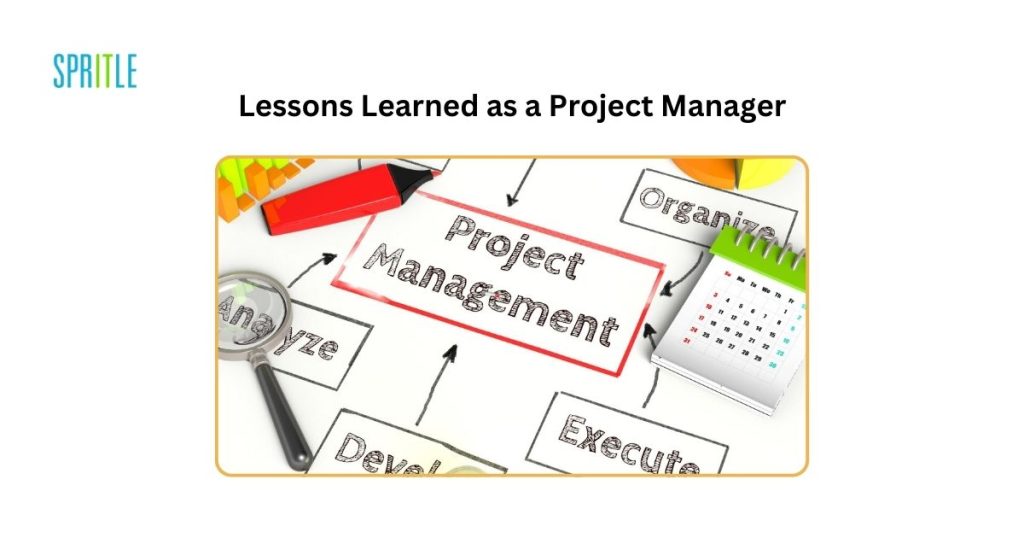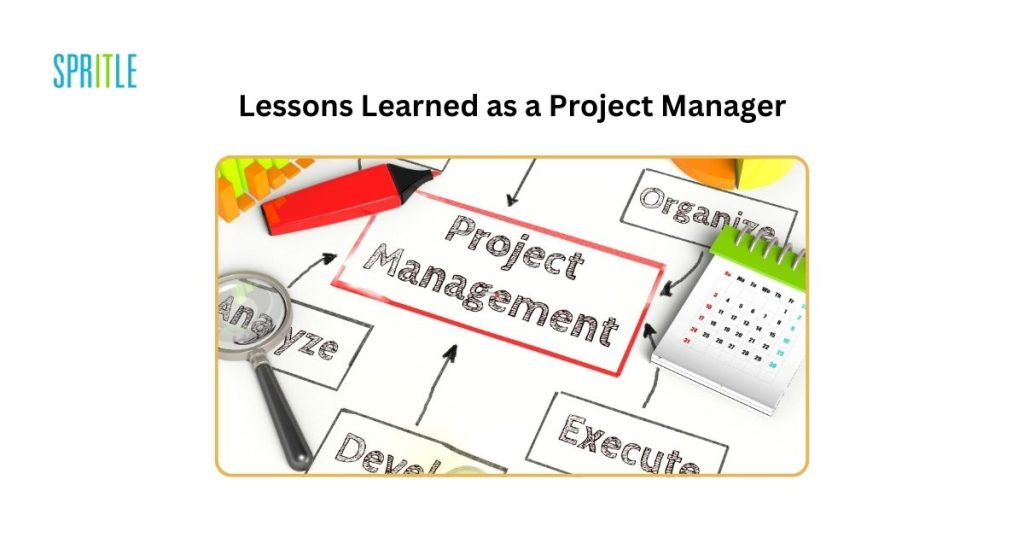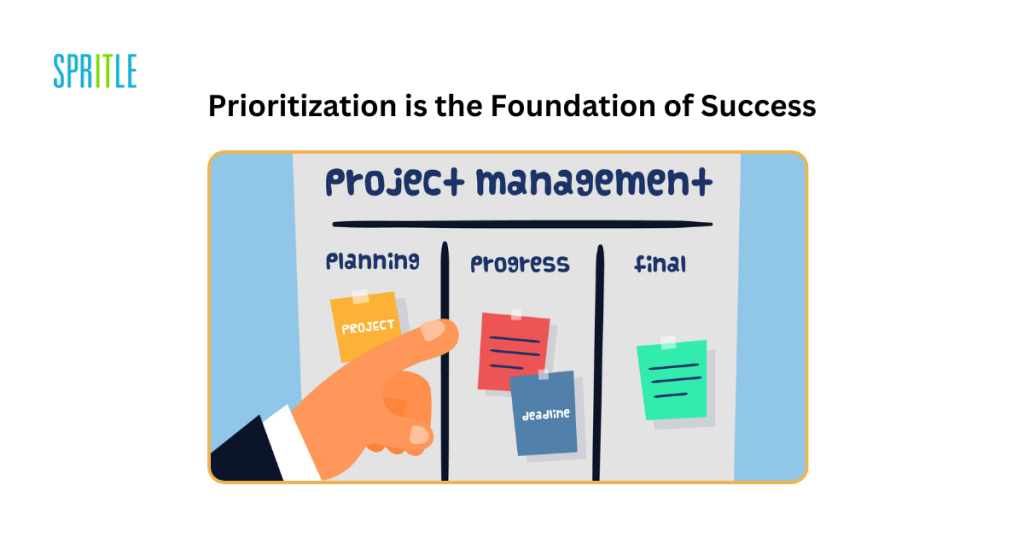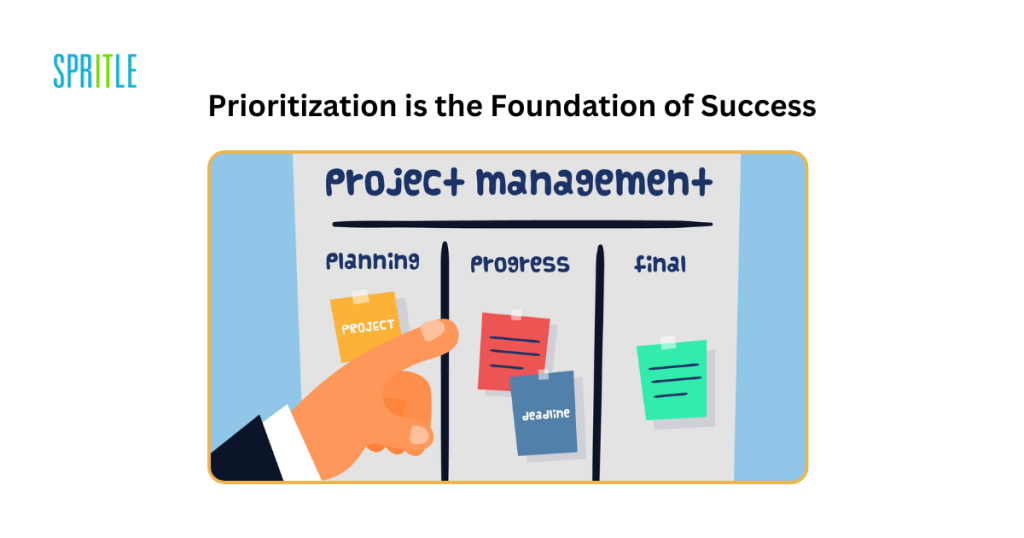

Managing projects is a dynamic, ever-changing process. It’s filled with challenges, victories, and valuable lessons that continuously shape the way I approach each new endeavor. Here are some of the most impactful lessons I’ve learned throughout my project management journey:


1. Prioritization is the Foundation of Success
Not everything can or should be done at once. In fact, trying to do so is a recipe for chaos. Prioritizing tasks ensures that the most important items get done first. focusing on a critical deadline over a low-priority feature can mean the difference between project success and failure. Prioritize what moves the needle, and let the rest follow.


Example: I always prioritize my tasks based on urgency and importance. This approach has transformed my workflow, ensuring that critical deadlines are met while preventing delays in the project.
2. Communication: The Ultimate Glue
Without effective communication, even the best projects can fall apart. Regular updates, clear instructions, and consistent check-ins ensure everyone stays on the same page. Whether through Slack messages, weekly meetings, or quick stand-ups, frequent communication prevents misunderstandings and fosters collaboration.
Example: Regular follow-ups and providing proper updates—like knowledge transfer sessions and detailed MOMs—have kept my projects on track by addressing issues early and ensuring everyone stays aligned.
3. Preparation Pays Dividends
A well-prepared project is one set up for success. Neglecting the planning phase can create confusion, delays, and bottlenecks down the line. Break your project into clear, manageable steps with deadlines and allocate resources accordingly. The time you spend planning will pay off tenfold.
Example: A project with a clear timeline and tasks mapped out prevented multiple last-minute scrambles, allowing the team to execute without panic.
4. Embrace the Unexpected
Even the most well-planned projects encounter surprises—budget changes, team shifts, or scope adjustments. Flexibility is crucial to keeping things on track when unexpected situations arise. Instead of getting bogged down by sudden changes, learn to adjust and pivot without losing focus.
Example: Mid-project, the client requested significant scope changes. Instead of delaying, we quickly reprioritized tasks, adjusted timelines, and reallocated resources. This flexibility allowed us to deliver the new features without derailing the project.
5. Observation: Small Details Lead to Big Outcomes
Little things matter in project management. Monitoring team dynamics, tracking timelines, and staying on top of small updates can prevent major issues later. A seemingly minor issue can quickly escalate if unnoticed.


Example: Noticing one team member was consistently overloaded, we adjusted assignments early on. This small observation improved overall efficiency and prevented potential delays in the project.
6. Focus on Solutions, Not Problems
Dwelling on what went wrong can stall progress. Acknowledging issues is important, but focusing too much on them hinders forward momentum. Shift your energy to finding solutions and keep your team moving forward.
Example: In one project, a key deliverable was delayed, which could have derailed the timeline. Instead of focusing on the missed deadline, we quickly reorganized priorities and found a workaround that kept us on track.
7. Handle Conflicts Before They Escalate
Conflicts are inevitable, especially in high-pressure environments. What matters is how quickly and effectively you address them. Confront issues early before they escalate, and if necessary, escalate them through the right channels for resolution. It prevents unnecessary friction and keeps the project environment healthy.


Example: When a difficult client expressed dissatisfaction, I addressed their concerns immediately, identified the root causes, and collaborated with them to resolve those issues effectively before they escalate
8. Never Stop Learning
Each project, team, and client presents new challenges, and no two projects are alike. Continuous learning is essential. By reflecting on past experiences, I’m constantly refining my project management approach and improving how I lead future projects.
Example: After struggling with a complex clients, I started implementing different approaches through trial and error, which have significantly enhanced my project management skills.
9. Celebrate Every Win—Big or Small
Milestones, big or small, are worth celebrating. Recognizing progress boosts team morale and keeps motivation high throughout the project lifecycle. Celebrations don’t have to be grand gestures—a simple acknowledgment of effort can make a significant difference.
Example: During a project with a tight deadline, we celebrated the completion of each phase with a quick “win” meeting, which kept the team energized and focused.
10. Delegation: The Power of Shared Responsibility
Trying to do everything yourself will only lead to burnout and inefficiency. Delegation allows team members to take ownership of tasks, fostering accountability and trust. Plus, it frees you up to focus on the bigger picture.


Example: Early on, I used to take on most tasks and responsibilities myself. Recently, I learned to delegate effectively, allowing me to oversee the progress while ensuring all tasks are completed successfully.











